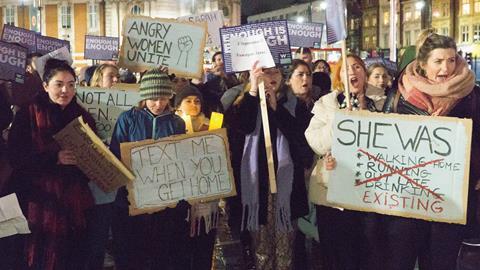The Law Commission has unveiled a raft of proposals on the use of evidence in sexual offence prosecutions – but will they end the ‘pervasive rape myths’ that continue to beset these cases?
Asked by the government to examine the law relating to the use of evidence in sexual offence prosecutions, the Law Commission on Tuesday unveiled proposals to counter the effects of rape myths on – and misconceptions concerning – the trial process.
Criminal law commissioner professor Penney Lewis said ‘incremental progress’ has been made in how sexual offences are investigated and tried. However, the way the criminal justice system handles alleged rape and serious sexual offences continues to leave prosecutions at risk from the impact of ‘pervasive rape myths’, causing trauma and distress.
Common myths are: rape is usually perpetrated by a stranger; rape always involves physical force; rape will always be physically or verbally resisted; rape will always be reported promptly.
No stone is left unturned in the commission’s 727-page consultation document, which looks at personal records held by third parties, sexual behaviour evidence, character evidence, trial conduct and jury decision-making. Lewis said the commission’s proposals are aimed at improving the way evidence is used, in order to do justice to complainants and defendants ‘fairly, compassionately, and with a better understanding of consent and sexual harm’.
The commission proposes a bespoke, unified regime governing police and prosecution access to complainants’ personal records held by third parties (such as counselling notes). Such a regime would incorporate judicial oversight of whether and how these records should be used, and consider factors such as the complainant’s right to privacy and the importance of the records to the defendant’s case.
A new framework would restrict the use of evidence of complainants’ sexual behaviour, with judges required to consider the probative value of such evidence and the risk of prejudice. The Youth Justice and Criminal Evidence Act 1999 bans admission of evidence regarding or cross-examination of a complainant’s previous sexual history or behaviour, unless the evidence is relevant and fits one of four ‘gateways’. However, the commission say the current framework is too complex.
'The Law Commission’s proposals are aimed at doing justice to complainants and defendants fairly, compassionately, and with a better understanding of consent and sexual harm'
Professor Penney Lewis, criminal law commissioner
Complainants would have access to independent legal advice, assistance and representation in respect of applications and requests relating to their personal records and sexual behaviour evidence.

All judges and most advocates are trained on myths and misconceptions before they work on a sexual offences case. However, the commission suggests mandatory training for all advocates involved in such cases, pointing out that training is compulsory before practitioners can take on youth court work.
‘Radical’ reforms include specialist rape courts and juryless trials. Given the contentious nature of these issues, the commission refrains from making proposals.
Specialist rape courts, however, are already a key talking point in the run-up to the next general election. Labour announced at last year’s party conference that it will introduce specialist rape courts in every Crown court in the country. The government is currently piloting ‘enhanced support’ at Leeds, Newcastle and Snaresbrook Crown courts.
The advantages of specialist rape courts? They would develop practitioner expertise in combating myths and misconceptions, to maximise best evidence without harming the complainant or facilitating wrongful acquittals.
The disadvantages? As well as the risk of traumatising lawyers and judges with repeated exposure to sexual offences cases, a perceived loss of impartiality by singling out these offences could affect the defendant’s right to a fair trial.
On juryless trials, England and Wales will closely watch how a highly controversial pilot recently announced in Scotland plays out. Defence lawyers north of the border have pledged to boycott the pilot.
Opinion is divided. A psychologist told the commission that the only way of dealing with ingrained myths and misconceptions held by jurors is to remove jurors altogether. Trial conduct would be less of an issue. However, some argue that giving a judge sole responsibility of weighing up the evidence and applying the law could result in error without external scrutiny. Public confidence could be undermined.
It is arguable that juryless trials should be considered only once all other options, such as amendments to directions and juror education, have been exhausted. Could giving defendants the choice of a jury trial alleviate some of the concerns? In Canada, trial by jury is a constitutionally protected choice.
The consultation closes on 29 September and a final report will be published next year.
Both main political parties claim tackling trial delays and low prosecution rates are high on their agenda. We must wait and see how many of the commission’s proposals they adopt.
This article is now closed for comment.





































7 Readers' comments